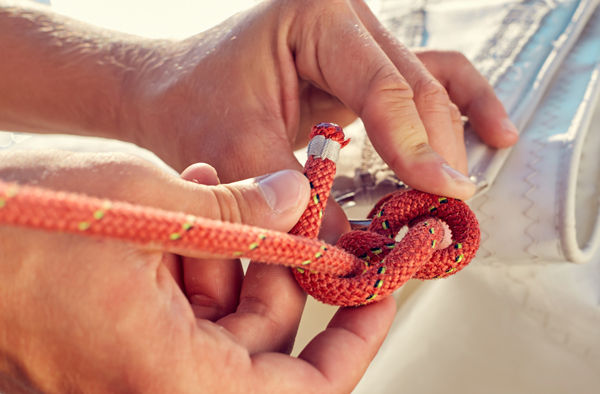To Stay Safe, Raise Your Level of Awareness
- Jack Dippel

- Jun 5, 2020
- 4 min read
Updated: Jun 5, 2020

During times of emergency, you can either choose to be proactive or reactive. The difference is that by being proactive, you are more in control of the situation. If you're reactive like most people, your awareness level is low.
Sudden acts of violence that seem to spring out of nowhere can take you by surprise because you're unaware of what is going on around you. There are thousands of people who have been victims of thefts, rape, robberies, even murders...all because they weren't aware of their surroundings.
To be prepared at all times, you should remember this mantra: if you're not looking for it, you won't see it coming!
1. Look out for things that seem off
The first step to raising your level of awareness is to look out for things that may seem amiss or out of the ordinary. During a time of crisis, crimes will skyrocket. This we see in our daily news. Even during peacetime, criminals are constantly looking for an opportunity to strike and they want an easy victim. It's going to be someone, unfortunately...but you don't want it to be you.
If you notice the same guy walking by the street outside your house several times and you've never seen him before, do alert law enforcement. Do not assume he's a landscaper. Something is amiss, and you need to be proactive. He could be casing your house with intentions to break in at night. It's better to err on the side of caution.
2. Risk management
People by nature are not violent. Most of them abhor confrontation and physical fights because they do not want to hurt someone or get hurt in the process. However, in our society, the fact is there are people who enjoy causing harm. They may have anger issues or be mentally unsound.
If you bury your head in the sand and think that a quiet, non-violent style is the way to go, then don't be surprised if you end up as the victim. Stay calm but don't be blind.

If you're outside and a group of young kids makes fun of you, do not approach them to escort them out. Let it go and move on. The first rule of survival is to get away from a dangerous situation.
If you're in a bus late at night and someone who looks creepy gets on the bus, stay alert and be aware of what they're up to without making direct eye contact. Do not bury your head in a magazine or glue your eyes to your mobile phone. They could attack you in an instant and catch you unaware.
3. Walk confidently
Just making yourself look confident and like someone that is not to be messed with is enough to put off most criminals. The man who walks upright and scans his surroundings confidently gives off the air that he can handle himself. Criminals will steer clear of him because he doesn't seem like an easy target.
The man who shuffles meekly to his car while clutching a newspaper under his arm as he balances his cup of coffee while trying to use his phone pinched against his ear with his shoulder as he opens the car door has the words "mugging victim" written all over him.
Act brave. Look tough and be alert, even if you're shaking in your boots. Presentation matters.
4. Teach your children well
Teach your children not to trust strangers. If someone calls the house pretending to do a survey and the kid answers the phone, they shouldn't disclose if there's no one at home. Or mention that their mother is busy doing the dishes at the moment and there is no other adult around. It could be someone planning to rob the house.

The people that your kids meet on the internet can pose serious threats too. Be very aware of whom they're chatting with online.
5. Don't be overly trusting
Last but not least, NEVER be too trusting with total strangers. Your good deeds are susceptible to someone taking advantage. The guy having car problems by the road may have accomplices who carjack you the moment you step out to offer them assistance.
If you told a few of your neighbors that you are storing food supplies in case of an emergency, they'll probably not think too much of it. However, when crisis strikes and there's suddenly a food shortage in your area, guess who is the first person they're going to think of approaching (or robbing heaven forbid). Yup...it's you. Be careful of what you tell others. There can be severe consequences.

6. Be aware of credit card scams
During a pandemic, there will be an increase in attempted credit card scams. Make sure when you do any online shopping, check to see there is an "https" at the beginning of the url you are visiting. This usually means your information is secure.
It's also a good idea to charge with a credit card or PayPal instead of your debit card. That way, if your account number is stolen, you have more time to stop the transaction. See more ways to protect yourself from scams, read Amanda Kitch's article on Fox8.
7. Establish a communication plan with family
You have to ask yourself, “What if something happens and I’m not with my family?” “Will I be able to reach them?” “How will I know they are safe?” “How can I let them know I’m OK?”
During any emergency situation, you will need to send information to and from your family. Remember, our most relied on communication devices (cell phones, tablets, and computers) could be unreliable during disasters, and electricity could be disrupted.
Planning in advance will help ensure that all the members of your household—including children and people with disabilities and others with access and functional needs, as well as outside caregivers—know how to reach each other and where to meet up in an emergency.

Why texting is best: If you are using a mobile phone, a text message may get through when a phone call will not. This is because a text message requires far less bandwidth than a phone call. Text messages may also save and then send automatically as soon as capacity becomes available.
FEMA provides an easy way to create a Family Emergency Communication Plan.
To wrap it all up, just know that during a crisis, you need to be extra vigilant and aware of what's going on around you. Stay alert and you'll be much more likely to pick up on little things that just don't seem right. Your gut instincts will guide you. Listen to them and you'll probably be safe.
Be prepared, stay safe!




Comments